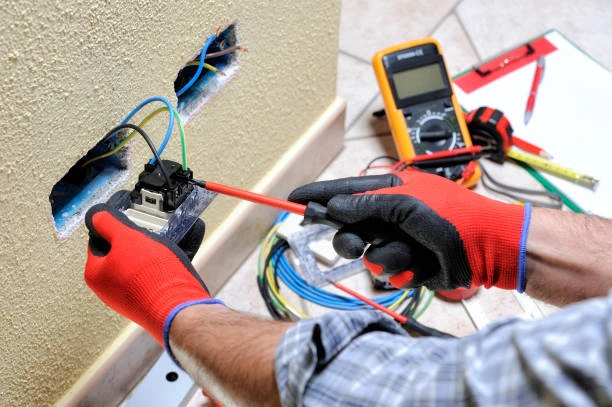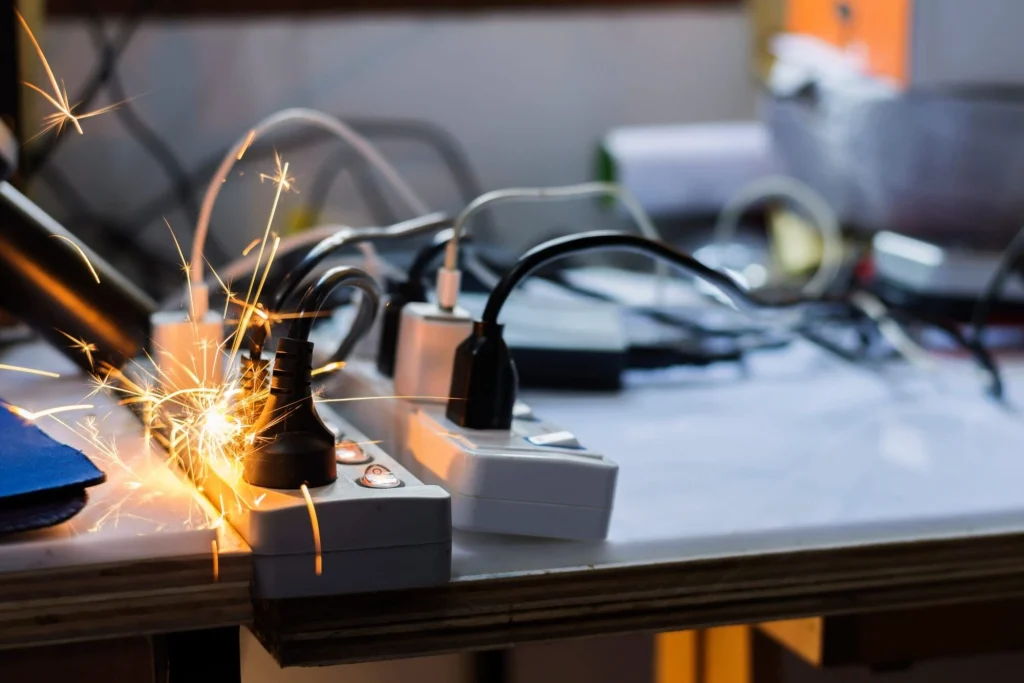You flip a switch and … nothing happens. Or worse, you get a shock – not the kind of wake-up call you want in Albany, WA. Electricity is essential in our homes, but it can be deadly if mishandled. That’s why a qualified Electricity Technician Albany (i.e. a local licensed electrician) is your best friend when wires misbehave. In this friendly, easy-read guide, I’ll walk you through why it’s vital to call a pro, how to stay safe, what fixes and upgrades they do, and how much it might set you back. Let’s light up the facts (safely, of course)!
Imagine this: it’s winter in Albany and your heater trips the circuit breaker every time it kicks in. Frustrating, right? Many folks think “I can handle a quick fix,” but the truth is electrical faults cause a lot of house fires in Australia. As the WA Government bluntly warns, “Don’t DIY electrical work!” – it’s illegal and puts you and your family at risk of electrocution or fire. Only a licensed electrician (like your local electricity technician in Albany) has the training, tools and certification to safely solve the problem. In Western Australia you’re required by law to hire a licensed sparkie for any wiring, repairs, or new installations. They’ll even give you an official electrical safety certificate afterward to prove the job’s been done right.

Why Hire an Electricity Technician in Albany
You might think: “But how hard can it be to change a plug or reset a breaker?” Trust me, I used to think that way too – until I ended up shorting out a socket and learned the hard way! The bottom line is, only a properly licensed technician should touch the wiring in your home. In WA, electricians hold licences that start with “EC” (for contractors) or “EW” (for workers), and they’re required to meet strict competency standards. Licensed pros have insurance and know local rules.
Here are the big reasons to call in the pro:
- Safety first. Electrical accidents (shocks, burns, or fires) are very dangerous. A pro uses the right safety gear, tests for live wires, and knows building codes. The Western Australian guide even reminds homeowners that electrocution or fire are risks of DIY projects.
- Legal compliance. In WA it’s illegal for an unlicensed person to perform electrical work. If something goes wrong and your licenced electrician didn’t do the work, insurance might not cover damage or injury.
- Quality and guarantee. Licensed electricians give you an electrical safety certificate after major work. This certificate (required by law) guarantees the work meets safety standards. If you ever sell or rent your place, you’ll need those certificates.
Did you know? Even when buying electrical gear online or from overseas, a licensed sparky in Albany should refuse to install it if it doesn’t meet Australian safety standards. They’re protecting you from dodgy kit.
Bottom line: think of hiring an electricity technician in Albany like using a qualified doctor for your health. It might feel a bit costly upfront, but it saves lives and prevents big headaches later.
Simple Electrical Safety Tips
Before you ever start poking around under the light switch, keep these safety basics in mind. You don’t have to be an expert, just develop some smart habits to protect your home:
- Never DIY big jobs. Seriously, as the experts say, “Don’t DIY electrical work!” Even something as simple as installing a new power point can go wrong. Mistakes cause shocks or fires. Save yourself and your walls – call a licensed Electricity Technician in Albany.
- Avoid overloaded outlets. Plugging too many devices into one socket (or stacking power boards) can overheat it. In Aussie homes, one double power point handles up to about 2400 watts. Exceed that, and you could spark a fire. If you need more devices, spread them out or upgrade your wiring.
- Check cords and plugs. Every few months, glance at your extension leads, appliance cables and power tools. If you see exposed wires, frayed insulation or melted plugs – toss them. Don’t wrap faulty cords with tape; it’s only a temporary fix at best. Safety switches (RCDs) will trip if there’s a shock risk, but don’t rely on them to catch everything.
- Keep water away from power. This sounds obvious, but it still catches us out. Always dry your hands before touching plugs, and never use hairdryers or chargers with wet hands or near a bath/shower. Water conducts electricity, so even a hair straightener near a sink is a recipe for disaster. If your area floods, have your electrician raise switchboards above expected levels.
- Use correct light bulbs. Light fittings list a maximum wattage (e.g. “Max 60W”). Don’t exceed it. Even modern LED fixtures can overheat if you shove in too high-power a bulb. When in doubt, go a lower wattage – it’s safer and still bright enough.
- Install and test safety switches (RCDs). These lifesaving devices cut the power instantly if a fault occurs. In many parts of Australia (including WA), RCDs are mandatory on all circuits. Make sure your electrician has put one on each relevant circuit, especially in bathrooms or outdoors. Test them every 3 months by hitting the little “test” button – your local pro can show you how.
These tips won’t replace an electrician, but they go a long way to keep you safer between professional visits. As one local sparky quipped in the West: “Even when the switch is off, there are still live wires behind it” – so don’t fool with any fixing or painting around switches without cutting power to the circuit.

Common Electrical Repairs & Services
So what can an Electricity Technician Albany actually do for you? The short answer: just about anything involving wires and power. Here are some everyday electrical services and solutions people ask for in Albany:
- Lighting fixes and installations. Flickering lights, faulty downlights, or planning new fixtures? An electrician replaces globes or installs whole new light fittings safely. Upgrading to LED downlights is popular (but still needs correct installation). Even intricate jobs like fancy chandeliers or outdoor garden lights require a pro’s touch. Expect roughly $70–$130 per light fixture installed (plus the cost of the light itself).
- Power points and switches. Adding extra outlets (power points) in a room costs about $140–$180 each. Need dimmer switches or new fan controls? They handle that too. If a socket is giving sparks or refuses to hold a plug, an electrician will replace it properly.
- Appliance circuits (like ovens and aircons). Big appliances often need dedicated wiring. Installing an oven or split-system AC means running new cables and circuits – a task for an electrician, not your DIY toolkit. These jobs can run up a bigger bill since they use more copper and work.
- Ceiling fans and exhaust fans. Want to cool your room with a ceiling fan? Installing one (or replacing it) typically costs $100–$600 in labour, depending on fan complexity. Don’t trust dodgy early 2000s wiring; get a pro to make it neat and safe.
- Switchboard upgrades and safety switches. If your house is a few decades old, you’ll likely need a new switchboard. Electricians replace old fuse boxes with modern circuit breakers and safety switches. Upgrading a home panel usually runs $500–$1,200. This is a vital upgrade – modern safety switches reduce shock risk by cutting power instantly when they detect a fault.
- Rewiring and major jobs. Full-house rewiring is a big job, often needed in old homes. It usually costs between $3,000 and $8,000 (even more for very large houses). I know – ouch. But leaving ancient wiring can be riskier and more expensive later. Getting it done before something bad happens is wise. Often, electricians say “replacing the wiring is the only safe fix” for really old homes.
- Smart electrical solutions. Today’s electricians also offer modern solutions. Thinking solar panels, battery storage or EV chargers? These all need expert install. They can set up smart home systems too – from programmable lighting and security to internet-controlled appliances. In fact, almost two-thirds of Aussie households are eyeing smart home tech, and a qualified sparkie will hook it all up.
- 24/7 emergency fixes. When the lights go out or you see sparks, emergency services are lifesavers. Not every electrician works nights/weekends, but many local businesses in Albany offer 24/7 help. Common after-hours callouts include power outages, tripping breakers, sparking power points or downed wires. One local source says: “24/7 emergency electricians are there to come to the rescue when you have an after-hours electrical problem… flickering lights or sparking outlets – hopefully never a fire.” When that happens, call an emergency electrician in Albany right away and never try to fix it yourself.
Each of these jobs is part of the range of electrical services in Albany you can get. And if you’re not sure if it’s “just a quick job,” remember: even a small fix can go sideways. I once tried to fix a flickering kitchen light by myself – ended up making it worse and had to call a sparkie anyway. Lesson learned: better safe and get a pro.
Common Electrical Jobs vs Typical Cost (AUD):
| Service | Typical Price Range |
|---|---|
| Install/Replace lighting fixture | $70 – $130 per fitting |
| Add a new power point | $140 – $180 each |
| Ceiling fan installation | $100 – $600 |
| Install safety switch (RCD) | $90 – $250 per switch |
| Switchboard (panel) upgrade | $500 – $1,200 |
| Whole-house rewiring (small home) | $3,000 – $8,000 |
(Keep in mind: these are ballpark figures. Your actual cost depends on job size, parts, and whether it’s an emergency or after-hours call. Always get a written quote before work begins.)
Choosing the Right Sparkie in Albany
With the costs and risks in mind, how do you pick the right electrician (Electricity Technician) for the job? Follow these tips to avoid getting burnt:
- Check the license. Ask for the electrician’s licence number (it will be on their paperwork or truck). In WA, you can verify it on the government’s website. A legitimate Electricity Technician in Albany will happily show this. If they hesitate or say they don’t need one – run!
- Ask for a quote and certificate. A good contractor will give you a clear quote in writing. And remember the Electrical Safety Certificate I mentioned: get them to promise one after the work. If they don’t mention it, ask. No certificate can mean the work isn’t safe or legal.
- Look for experience and reviews. Does the sparkie have reviews on local sites or word-of-mouth? People often rave about punctuality and cleanup. For example, one customer review said a technician was “reliable, timely, affordable, helpful and friendly.” Good companies will also have insurance and possibly industry memberships (like NECA or Master Electricians Australia).
- Confirm emergency availability if needed. If you want 24/7 help, check that upfront. Some Adelaide (or Albany) electricians advertise 24-hour service – handy if you fear nights.
- Energy-efficient solutions. Since a young Albany homeowner might care about the planet, ask if they recommend energy-efficient options: LED lights, solar-ready panels, smart meters, etc. A forward-thinking Electricity Technician Albany should guide you on “electrical solutions” that save money and energy.
Always get multiple quotes if you can (at least 2–3), but don’t just pick the cheapest blindly. The lowest price might mean they’re skipping tests or not paying for a permit. It’s better to spend a bit more for peace of mind.
Electricians don’t just fix problems – they offer “electrical solutions” for modern homes, from solar panel wiring to smart lighting. Always hire a licensed sparkie to install these safely.
Conclusion
Keeping your home’s power in good shape is crucial – and it starts with the right pro. In this Albany guide we learned that safety is everything: never DIY risky jobs, always use licensed electricians, and keep basic precautions (like RCDs and not overloading outlets) in mind. We also saw typical costs for everything from new lights to whole-home rewiring, and how 24/7 emergency electricians in Albany can be lifesavers if disaster strikes.
As you search for Electricity Technician Albany, use what you’ve learned: check licences, read reviews, and get quotes in writing. Protect your family and your wallet by making informed choices. And remember, a skilled electrician is not just another bill – they’re an investment in your safety and peace of mind.
Ready to tackle that next electrical project? Stay safe out there, and if in doubt, call a licensed professional Electricity Technician. Feel free to share your own tips or questions below – we love a good electricity story (with a happy ending, of course)!
FAQs
How much does an electricity technician cost in Albany?
Electricians in Albany typically charge around $80–$130 per hour. You’ll also likely pay a call-out fee (~$75–$150). Simple jobs like installing a power point can be a few hundred dollars, while large jobs (panel upgrades or rewiring) run into the thousands.
Is it legal to do electrical work myself in Albany?
No. In Western Australia it’s illegal for an unlicensed person to do electrical work. Even small jobs (switches, outlets, light fixtures) must be done by a licensed electrician. It’s a law enforced to keep everyone safe from shocks and fires.
When should I call an emergency electrician in Albany?
Call an emergency electrician if you see sparks, smoke, burning smells, or constant power trips. Also for issues like a major outage (not caused by Western Power), water damage near electrics, or if breakers won’t reset. These could signal a serious hazard requiring 24/7 pro help.
What services does an electricity technician in Albany provide?
Electricians handle all home wiring tasks: installing/replacing lights, fans, power points, switchboards, safety switches (RCDs), smoke alarms, solar panels, EV chargers, and more. They also do repairs (wiring faults, circuit issues, outlets) and give advice on electrical solutions for energy efficiency and home automation.
How do I find a trustworthy electrician in Albany?
Look for a licensed professional with good local reviews. You can verify licences via the WA government’s online search. Always ask for a written quote and check that they will provide an electrical safety certificate. Referrals from friends or neighborhood groups can also help you find a reliable sparkie.

